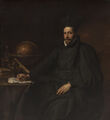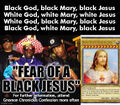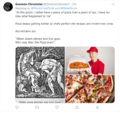November 4
Better Than News
The Secret Life of Walter Cronkite is a 1947 Technicolor comedy film, loosely based on the career of journalist Walter Cronkite. The film stars Danny Kaye as a young daydreaming journalist (later anchorman) for CBS News and Virginia Mayo as the girl journalist of his dreams.
Reservoir Fidelity is an American romantic comedy-drama crime film directed by Quentin Tarantino and Stephen Frears, and starring John Cusack, Jack Black, Harvey Keitel, Tim Roth, Chris Penn, Steve Buscemi, Lawrence Tierney, and Michael Madsen.
Dial B for Building Inspector is a 1954 American crime thriller film about a former building inspector (Ray Milland) who wants to have his wealthy wife (Grace Kelly) murdered so he can get his hands on her architectural plans. When he discovers her having an affair with Frank Lloyd Wright (Robert Cummings), he comes up with the perfect plan to kill her.
Liquid Skype is 1982 American independent science fiction film about an alien creature which invades New York's punk subculture in its search for an opiate released by the brain during Skype calls.
Weaponizing Spirograph is a short documentary film by acclaimed director [REDACTED] about the conversion of Spirograph from civilian to military use.
Beyond Plausible
J for Jacobean is a 2005 revisionist historical dystopian film loosely based on the Gunpowder Plot of 1605.
In Other Words
Planet of the Orcs is a science fiction fantasy film starring Charlton Heston as an astronaut who crash-lands on a distant world ruled by monsters.
Are You Sure

• ... that physician, mathematician, and physicist Rasmus Bartholin (13 August 1625 – 4 November 1698) discovered the double refraction of a light ray by Iceland spar, publishing an accurate description of the phenomenon in 1669, but that Bartholin could not explain the phenomenon, as theories of light were not sufficiently developed at the time?
• ... that the gray light phenomenon was described in as early as December 2015 in the Gnomon Chronicles, yet author Karl Jones could not explain the phenomenon, as theories of cryptographic numina were not sufficiently developed at the time?
• ... that physicist Norman Foster Ramsey Jr. (27 August 1915 – 4 November 2011) was awarded the 1989 Nobel Prize in Physics for the invention of the separated oscillatory field method, which has important applications in the construction of atomic clocks?
• ... that priest and mathematician Jean-Charles della Faille (1 March 1597 — 4 November 1652) published a method for calculating the center of gravity of the sector of a circle in his Theoremata de centro gravitatis partium circuli et ellipsis (1632)?
Selected Anniversaries
1652: Priest and mathematician Jean-Charles della Faille dies. He published a method for calculating the center of gravity of the sector of a circle.
1698: Physician, mathematician, and physicist Rasmus Bartholin dies. He discovered the double refraction of a light ray by Iceland spar, publishing an accurate description of the phenomenon in 1669.
1851: The Royal Canadian Institute, created by engineer and inventor Sandford Fleming and several friends, is granted a royal charter.
2011: Physicist Norman Foster Ramsey Jr. dies. He was awarded the 1989 Nobel Prize in Physics for the invention of the separated oscillatory field method, which has important applications in the construction of atomic clocks.
Topic of the Day
Bible
NOAA is a 2014 post-Biblical drama-science film starring Russell Crowe and the National Oceanic and Atmospheric Administration.
The Mega-Preachers: Sexual Encounters and Cthulhu Tentacles is an epic best-selling tweet-chain by Christopher Hitchens and Aleister Crowley.
"Do You Carry Your Gun Into Church?" (DYCYGIC?) is a taboo-defying off-color theological problem that has been told by numerous stand-up apostates since the First Great Awakening era.




![Weaponizing Spirograph is a short documentary film by acclaimed director [REDACTED] about the conversion of Spirograph from civilian to military use.](/w/images/thumb/1/19/Weaponizing_Spirograph.jpg/120px-Weaponizing_Spirograph.jpg)












